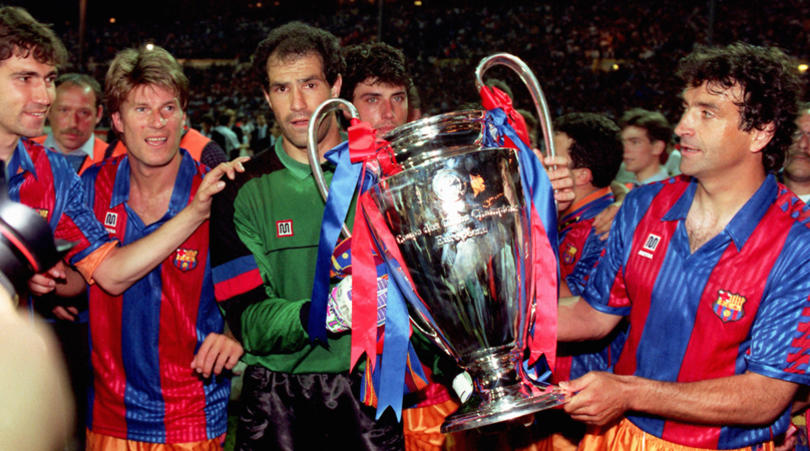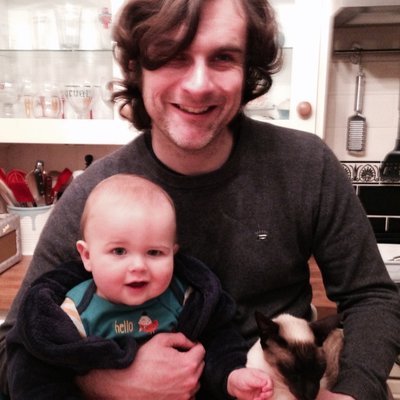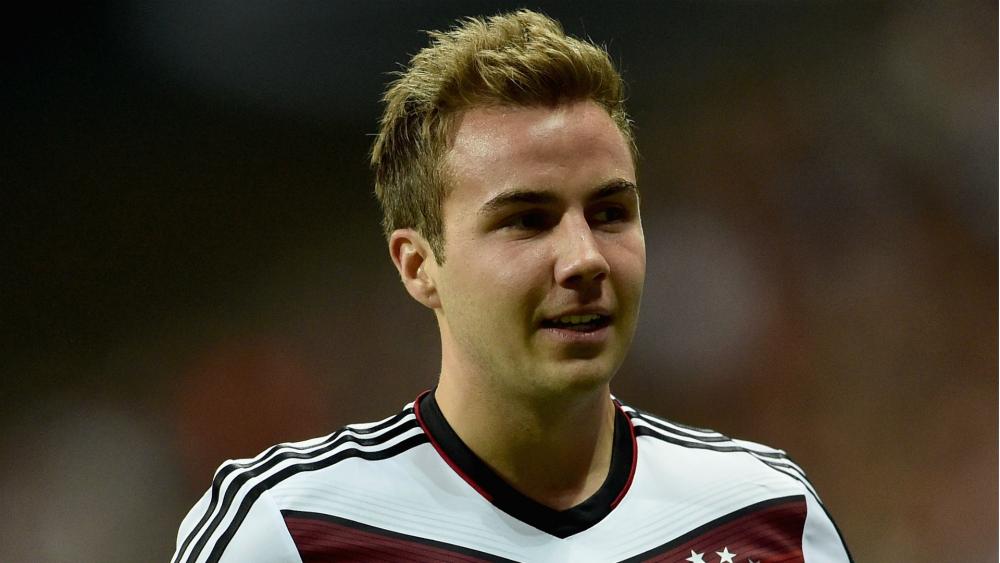Where are they now? Sir Alex Ferguson's first Manchester United title winners of 1992/93
Nick Moore remembers the Red Devils team that won the Scot's first Premier League title
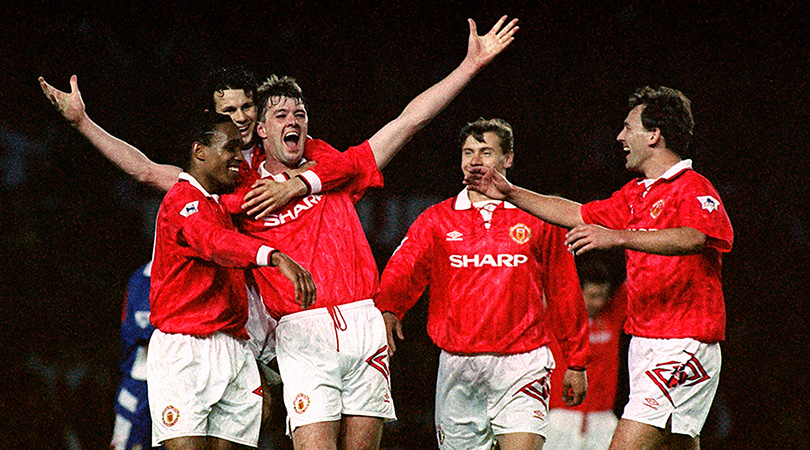
Peter Schmeichel
He’s since been a BBC pundit, Strictly Come Dancing star and a quiz show and Champions League programme host in Denmark
Manchester United’s agonising 26-year league title famine was partly down to longstanding problems between the sticks: while the likes of Gary Bailey, Chris Turner, Gary Walsh, Jim Leighton and even Mark Bosnich could put in respectable performances on their day, none were the truly world-class match-winner that the Red Devils desperately needed to get them over the finish line.
That problem evaporated when “bargain of the century” (according to Alex Ferguson) Schmeichel signed from Brondby in August 1991 for a paltry £505,000. He helped United to second place in his first term, won Euro 92 with the Danes over the summer, and then in 1992/93 kept an impressive 18 clean sheets as United marauded to league glory.
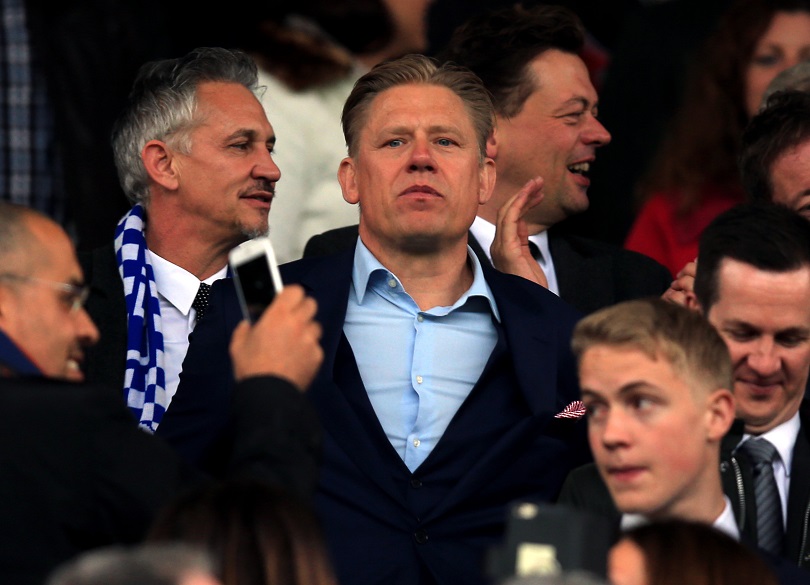
After departing United in 1999, Schmeichel played for Sporting, Aston Villa and Manchester City, before retiring in 2003. He’s since been a BBC pundit, Strictly Come Dancing star, and a quiz show and Champions League programme host in Denmark.
His son Kasper, meanwhile, proved a chip off the old block by winning the Premier League with Leicester in 2015/16.
Steve Bruce
His two late headers at Hillsborough, where United were trailing 1-0 to Sheffield Wednesday, were the title race’s key turning point
A face can tell a thousand stories, and Bruce’s irregular visage is testament to a career spent happily having his features rearranged by balls and elbows while vanquishing the opposition. 1992/93 was the year he did it best.
Get FourFourTwo Newsletter
The best features, fun and footballing quizzes, straight to your inbox every week.
Aged 32, Bruce already had 500 professional games (for Gillingham, Norwich and United) under his belt, and with Bryan Robson sidelined by injury he became the regular stand-in captain – and the epitome of this outfit’s grit and determination.
His two late headers at Old Trafford, where United were trailing 1-0 to Sheffield Wednesday, were the title race’s key turning point and propelled his side from second to top with five games to play.
Bruce left United in 1996, playing two seasons at Birmingham and then one at Sheffield United, where he was player-manager. He subsequently bossed Wigan, Crystal Palace, Birmingham (for six seasons, winning two Premier League promotions), Wigan again, Sunderland and Hull (including an FA Cup final appearance), and is currently comfy in the managerial hot seat of Aston Villa. He’s also published three cult novels – Sweeper!, Defender! and Striker! – y’know (under the pseudonym Steve Barnes).
Gary Pallister
Brilliant at covering for each other and snuffing out danger at the source, Bruce and Pallister could both out-muscle and out-think most opponents
The other 50% of what most Old Trafford connoisseurs view as United’s greatest-ever centre-half partnership, the 6ft 4in Pally – 28 at the time – was considered the more cultured of the two defenders.
But really it was their innate understanding of each other’s movements that made this pairing work: brilliant at covering for each other and snuffing out danger at the source, Bruce and Pallister could both out-muscle and out-think most opponents.
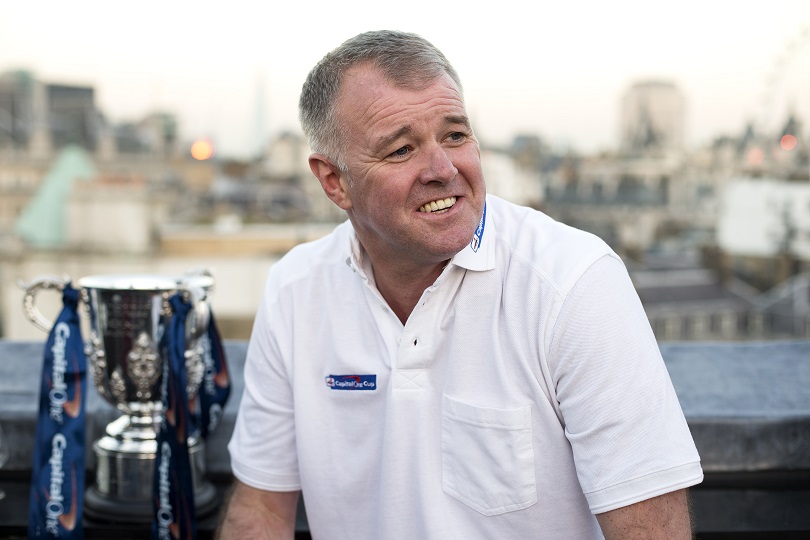
Together, they marshalled the league’s stingiest defence: the likes of Blackburn might have out-scored United, but at the back they conceded just 31 goals – seven fewer than the famously defensive Arsenal, who finished 10th.
Pallister spent three seasons with Middlesbrough after leaving Old Trafford in 1998. Apart from a short-lived spell as operations director at Darlington and some dabbling at the Boro academy, he wasn’t tempted to remain in the game, instead spending his time in a comfy pundit’s chair.
Denis Irwin
Arguably United’s greatest ever full-back, he was still keeping Phil Neville out of the team in his mid-30s
It’s telling that “Denis Irwin’s barmy army” was a popular Old Trafford chant around this time: despite the multitude of other legends in this XI, it was Irwin that the average terrace Mancunian loved the most. A left-back of near-Maldini levels of consistency, he balanced the back four perfectly and also delivered free-kicks as crisp as those that Beckham would soon be dispatching.
1992/93 saw Irwin in his mid-20s pomp, and the understated Irishman's strike in the 1-0 victory over Coventry during United’s seven-win run-in was vital to their final push.
Arguably United’s greatest ever full-back - he was still keeping Phil Neville out of the team in his mid-30s - Irwin departed in 2002 and enjoyed a couple of decent seasons at Wolves before retiring. Since then, he’s gone down the familiar ex-player’s media path, presenting programmes for MUTV, RTE, and writing for Irish paper the Sunday World.
Paul Parker
Parker later played non-league with Farnborough Town, and managed Chelmsford City and Welling United
Gary Neville will always be the right-back who leaps to mind when it comes to United’s 1990s supremacy, but another Englishman played the part capably during the season in which the dynasty began. A star of Italia 90 for the Three Lions, Parker was evasive, quick, reliable at the back and able to bomb forward effectively, mirroring Irwin’s buccaneering runs up the other flank.
But after this glorious season – and another league winner’s medal in 1994 – he struggled with injury and lost his place to G-Nev. Parker left United in 1996, but despite trying to resurrect his career with Derby, Sheffield United, Fulham and Chelsea, would only make a handful of further professional appearances.
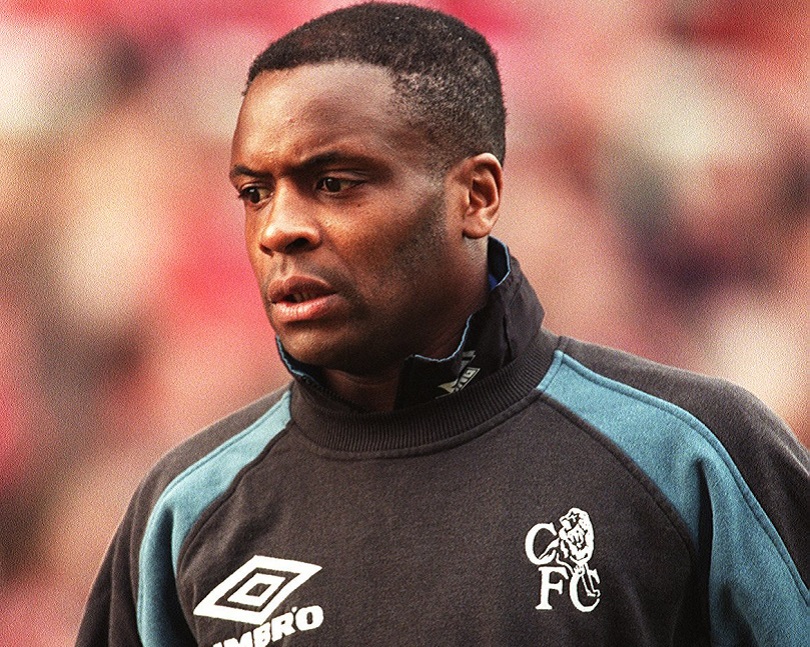
Parker later played non-league with Farnborough Town, managed Chelmsford City and Welling United, worked as a coaching consultant, and has been a pundit for ESPN and various TV stations in Asia.
Brian McClair
He became a key supply line for Cantona, with the pair scoring a goal each as they overhauled Sheffield United
Eric Cantona’s unexpected arrival from Leeds in November 1992 is widely seen as the turning point in United’s recent history: the effervescent Frenchman was the fabled ‘final piece of the jigsaw’ that Ferguson’s men needed.
But, in 1992/93 at least, equal credit should also be heaped on McClair for the manner in which he uncomplainingly lost his place up front, moved into midfield (at Bryan Robson’s expense) and continued to perform a vital function for the unit.
Indeed, he became a key supply line for Cantona, with the pair scoring a goal each as they overhauled Sheffield United; ‘Choccy’ also notched against Everton, Oldham, Sheffield Wednesday – and grabbed the winner in the crucial 2-1 away win over Liverpool.
This admirable attitude and general selflessness made him a cult hero among United fans, and as his first-team opportunities reduced following the signing of Roy Keane, McClair kept fans entertained with 'Choccy’s Diary' in the official club magazine.
After a brief stint with Motherwell and as assistant boss at Blackburn, McClair returned to Manchester and became a youth team coach, reserve team manager and eventually, in 2006, director of the club’s academy. He carried out this role until 2015, when he was appointed national performance director for the SFA, a job he left a year later.
Paul Ince
United fans were irked when their midfield idol was controversially sold to Inter in 1995 – thanks to his multiple fallings-out with Ferguson
The heir to Bryan Robson’s throne as United’s midfield enforcer finally rose to power in 1992/93. Ince, who’d joined in 1989 and partnered a rotating cast of Robson, Neil Webb, Mike Phelan and Darren Ferguson in the centre of midfield over previous seasons, formed a dynamic relationship with Brian McClair.
The snarling duo were equally at home with destruction and creation on a football pitch: Ince was a fearsome tackler, but also had a fluid passing game and an eye for goal. He opened the scoring in wins over Manchester City, QPR and Nottingham Forest, as well as notching in the final three matches of the season.
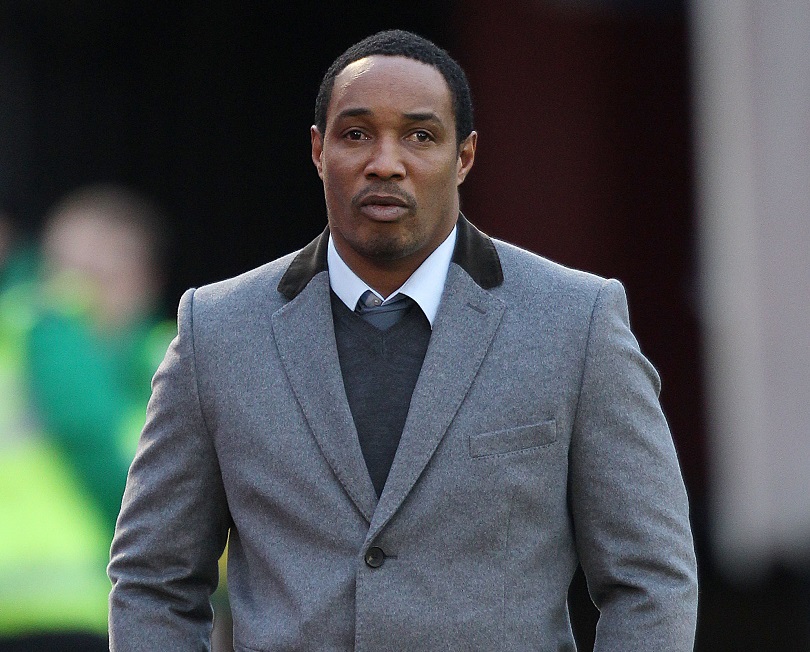
United fans were irked when their midfield idol was controversially sold to Inter in 1995 – thanks to his multiple fallings-out with Ferguson – but that love affair ended fast when he joined their eternal foes Liverpool in 1997; much pleasure was derived from the failings of that Spice Boy-era Merseyside team.
Ince later turned out for Middlesbrough, Wolves, Swindon and Macclesfield, where he served as player-manager. He’s since enjoyed a mixed-bag managerial career at MK Dons (twice), Blackburn, Notts County and Blackpool.
Ryan Giggs
Sometimes, he was a one-man show of pace and creativity: dazzling performances in wins over Southampton, Forest and Norwich stood out
Giggs was part of the furniture at United for so long that it’s sometimes easy to forget the sheer visceral thrill of watching him play as an uninhibited 19 year-old: United’s finest raw talent since George Best, single-handedly reinventing the art of the Stanley Matthews-style winger.
1991/92 had been his breathtaking breakthrough season, but ended in disappointment as an April slump led to United being overtaken by Leeds. 1992/93 would be perhaps his best ever year, performance-wise – and there is much competition for that honour.
Sometimes, he was a one-man show of pace and creativity: dazzling performances in wins over Southampton, Forest and Norwich particularly stood out. He ended the season with nine league goals and his second successive PFA Young Player of the Year Award – and yet still the general public knew little about him, as Ferguson refused to allow young Ryan to be interviewed until the end of the season.
The rest, however, everyone will remember: 900+ appearances, 13 league titles, three Champions League medals, four FA Cups and League Cups, Welsh heartache, tabloid titillation and the rest. More recently, a spell as a perma-frowned, bestubbled assistant manager at United under David Moyes and Louis van Gaal – and his departure from the club last summer following Jose Mourinho’s appointment – have put a question mark over Giggs’s continued role in the sport. Watch this space.
Lee Sharpe
Sharpe played a fine cameo in Bradford's great escape in 2000, before turning out for Portsmouth, Exeter and Icelandic side Grindavik
It’s odd to think that many fans look back on Sharpe as a Beckham-lite who blew his talent: the lightning winger managed a 16-year career in the game, and over 340 professional appearances. But the judgement is merely tribute to his initial potential: in the early 90s, Sharpe was a bona fide rival for Giggs’s status as United’s poster boy – both in terms of talent and sales of actual posters.
By 1992/93, it was a battle Sharpe was starting to lose, however: Giggs had taken his favoured left wing position, and he had to work very hard to stop Andrei Kanchelskis from seizing the spot on the opposite flank. Nevertheless, he managed 27 appearances during the campaign – more than Cantona or Kanchelskis – and was often at his full-back-menacing best during the title surge.
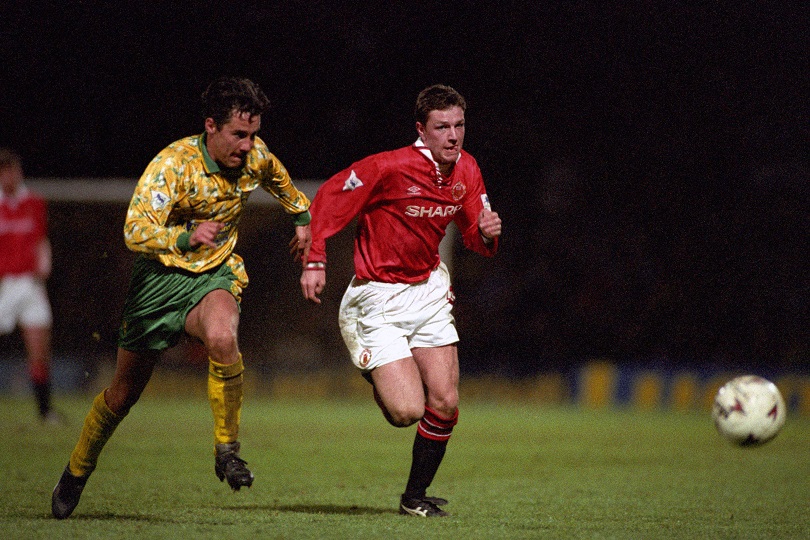
Sharpe’s decline started over the next couple of season. Kanchelskis, then Beckham were preferred; he was then beset by injuries and moved to Leeds, where further knocks slowed him down. He played a fine cameo in Bradford's great escape in 2000, before turning out for Portsmouth, Exeter and Icelandic side Grindavik.
Since retirement, Sharpe has slotted seamlessly into the ‘celeb’ lifestyle, with appearances on Love Island, Dancing On Ice, Superstars and various other TV landfill, as well as occasional punditry gigs.
Eric Cantona
United were lying in eighth place the day he signed; a month later they were top of the league
Many a rumour has abounded about why Eric crossed the Pennines for £1.2m in November 1992 – the man himself told FourFourTwo a decade ago that it was simply because “I had a bad relationship with Wilkinson” – but United fans will forever be grateful for the day that Leeds chairman Bill Fortherby called his equivalent Martin Edwards trying to buy Denis Irwin, only to end up selling Cantona instead.
His impact was immediate and dramatic: United were lying in eighth the day he signed; a month later they were top of the league. Cantona scored as United took apart Sheffield Wednesday, Coventry and Spurs to lead the pack. He was the catalyst for the Red Devils' breakthrough, their double the season afterwards and two further Premier League titles.
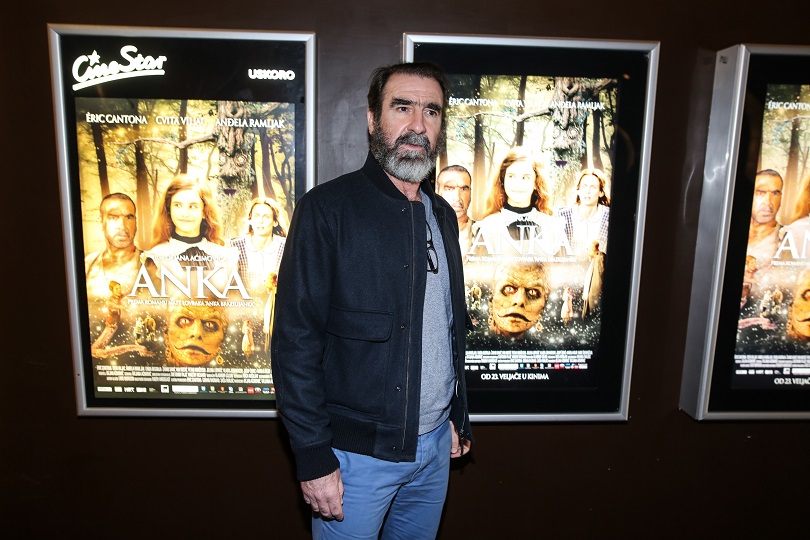
His retirement from the game aged 30 still frustrates many – Cantona himself subsequently admitted it was too early – but in the two decades since, he’s not disappointed, pursuing an eclectic acting career that has spanned Elizabeth, the Palme D’Or-nominated Ken Loach effort Looking For Eric (plus those Kronenbourg adverts), as well as a little bit of beach football and local politics.
- ONE-ON-ONE Eric Cantona: I didn’t punch the Palace fan strong enough. I should have punched him harder
Mark Hughes
He scored 15 goals, including vital winners over Arsenal and Norwich, and was impeccable when it came to linking up and holding up play, too
While Cantona, Giggs and Schmeichel are seen as the real game-changers among Fergie’s first title-winners – and their success was generally more down to defensive miserliness than avalanches of converted chances – they couldn’t have won it without their Welsh goal machine. Detours to Barcelona and Bayern Munich apart, Hughes had been at United since signing as a schoolboy in 1978, but would have to wait until the year in which he turned 30 to get his hands on a league medal.
He scored 15 goals, including vital winners over Arsenal and Norwich, and was impeccable when it came to linking up and holding up play, too.
Hughes left two years after the title triumph, performing admirably for Chelsea, Southampton, Everton and Blackburn before finally retiring from playing aged 39; by then he was already three years into managing Wales, and later became gaffer of Blackburn, Manchester City, Fulham, QPR and (currently) Stoke.
Andrei Kanchelskis (sub)
His finest hour was the following season, as an integral part of the double winning class of ’94; and the year after, in which he was United’s top scorer
The flying Ukrainian arrived from Shakhtar Donetsk in 1991 and added real zip to Ferguson’s attacking options. In 1992/93 he was favoured on the right side of midfield at the start of the season, before losing his place to Lee Sharpe – but remained a key part of the title-winning side, albeit mostly as an impact sub. This was a different time: Kanchelskis was one of just 13 non-British/Irish players who played on the first weekend of the Premier League era.
His finest hour was the following season, as an integral part of the Double-winning class of ’94; and the year after, in which he was United’s top scorer. One of many who eventually fell out with Ferguson, he moved to Everton in summer 1995, and after two excellent years transferred to Fiorentina. As his speed faded, his later career featured spells with Rangers, Manchester City, Southampton, Al Hilal, Saturn Moscow and Krylia Sovetov, before retirement.
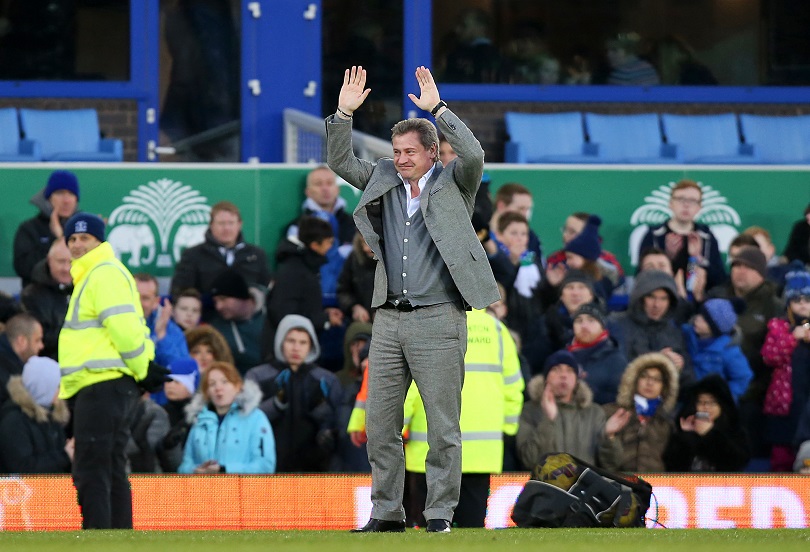
The mop-top later became a manager with Torpedo-ZIL Moscow and, most recently, Latvian side FC Jurmala, who he left in November 2014.
Clayton Blackmore (sub)
He could play across the backline and midfield (and wore every number from 2 to 11 during his career)
Gnarly Welshman Blackmore bagged 12 appearances in 1992/93 thanks to his versatility – he could play across the backline and midfield (and wore every number from 2 to 11 during his career). Like fellow Valleys native Hughes, Blackmore had signed as a schoolboy in 1978 and eked out 186 United appearances, mainly during the 1980s.
The tail end of his United career would prove by far the most fruitful honours-wise, though, as he bagged FA Cup (1990) and UEFA Cup Winners' Cup (1991) medals, before his sole Premier League triumph.
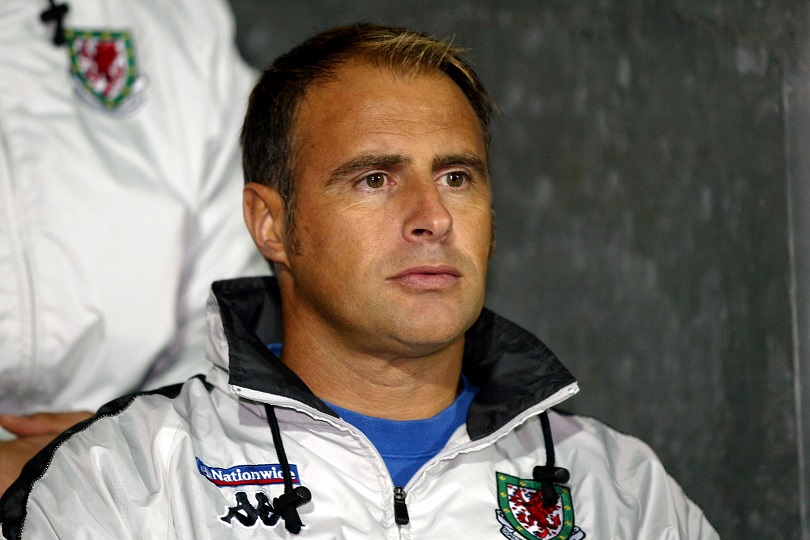
He didn’t play the following season due to injury, and in 1994 moved to Middlesbrough, where he helped Bryan Robson’s side clinch promotion to the top flight as Division One champions.
And he played and played: professionally with Bristol City, Barnsley and Notts County up until 2000, and then for 10 more years in non-league, most notably with Bangor City who he also managed.
Darren Ferguson (sub)
Dad sold his son to Wolves in summer 1994, where he had a solid five-year Division One career
The gaffer’s son could play a bit, you know: Fergie Jr. managed 15 appearances, mostly alongside Paul Ince in midfield up until November, after which Brian McClair stepped in – and was a functional part of the side, albeit lacking the talent of the superstars around him.
Dad sold his son to Wolves in summer 1994, where he had a solid five-year Division One career, but it was at Wrexham that he really found his level, making over 300 appearances and captaining the side to Division Two promotion in 2003 – as well as winning the Football League Trophy.
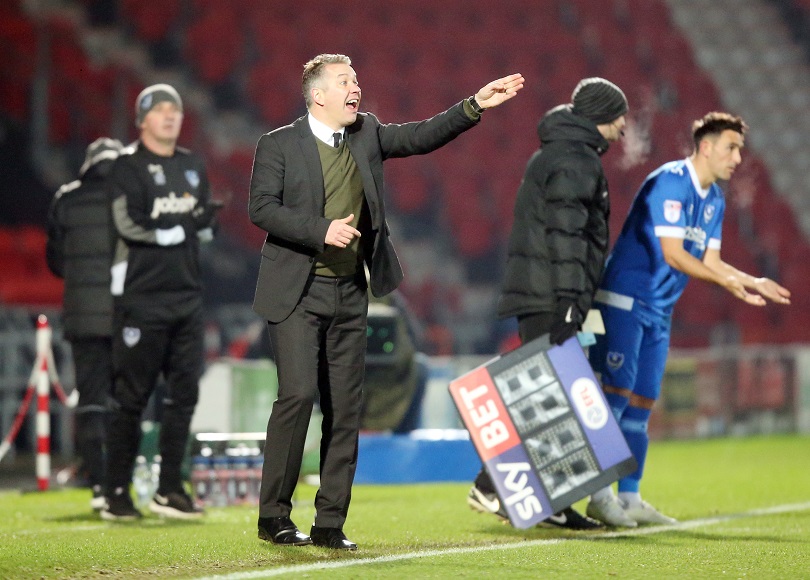
Ferguson followed Pops into football management in 2007; first at Peterborough, gaining promotion to League One in 2008 and then the Championship a season later. After a stint with Preston he returned to Posh in 2011, winning another Football League Trophy in 2014. He’s currently in charge of League Two leaders Doncaster Rovers.
Alex Ferguson
Remember this fella? United manager from 1986 to 2013, his Year Zero was truly 1993. With due respect to United’s earlier cup successes, it was this first title win that opened the floodgates for a managerial career by which all others – especially all others at Old Trafford – must be measured.
Twelve more titles and two Champions Leagues would (most notably) follow, and Fergie has more than twice as many league gongs as his next-closest rival.
Where is he now? At the races, savouring fine wines, immortalised in statues, lecturing at Harvard University, writing books, and – most visibly – loitering in the stands at Old Trafford, a haunting reminder for every new Manchester United manager of a father figure-stroke-deity that they can never, ever live up to.
Nick Moore is a freelance journalist based on the Isle of Skye, Scotland. He wrote his first FourFourTwo feature in 2001 about Gerard Houllier's cup-treble-winning Liverpool side, and has continued to ink his witty words for the mag ever since. Nick has produced FFT's 'Ask A Silly Question' interview for 16 years, once getting Peter Crouch to confess that he dreams about being a dwarf.

